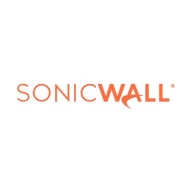


SonicWall TZ and Sophos Firewall compete in the firewall market. Sophos Firewall slightly has the upper hand due to its advanced application control and synchronized security features.
Features: SonicWall TZ offers ease of configuration for Site-to-Site VPNs, content filtering, and a user-friendly management console. Sophos Firewall provides advanced application control, comprehensive protection, and synchronized security with endpoints.
Room for Improvement: SonicWall TZ users seek better mail security, improved application detection, and a more intuitive interface. Sophos Firewall needs enhancements in link load balancing, SD-WAN capabilities, and faster support response times.
Ease of Deployment and Customer Service: Both SonicWall TZ and Sophos Firewall are mainly deployed on-premises. Sophos Firewall also sees deployment in public and hybrid clouds. SonicWall's support has occasional delays, while Sophos could improve support speed.
Pricing and ROI: SonicWall TZ is cost-effective for smaller businesses with reasonable ROI. Sophos Firewall offers competitive pricing with bundled deals, though recent price increases have raised affordability concerns.
Clients are now comfortable and not wasting productive hours on IT support.
The automation part is giving us a cost benefit and speed; we can react faster.
It's a very useful tool to mitigate and protect your enterprise.
That is a reason to buy a firewall, and it is challenging to put a monetary value on security.
The costs have increased with Sophos XGS in the last few years, with license prices going up by 30%, doubling from $2,500 to about $5,000, which is a big challenge for us.
The graphical interface of Sophos XG simplifies configurations, saving time in support and troubleshooting compared to the Linux-based solution I previously used.
We purchased endpoint security for the first time last year, and even without endpoint security, it provides comprehensive security.
The quick resolution of issues with Fortinet FortiGate is due to the support of the company and the fact that the equipment is easy to work with.
I would rate the technical support for Fortinet FortiGate a ten out of ten.
As a solution provider, when I encounter problems, I connect directly with Fortinet support, and they provide solutions within a very short time.
Customer service is excellent.
For support, I would rate SonicWall TZ five out of 10.
I rate the technical support a ten out of ten.
Their team was quick to diagnose and resolve the problem by exchanging the equipment within two weeks.
Any issues are quickly addressed by their support team, which is not common among all OEM manufacturers.
They scale up really well from smaller models like the FortiGate 40 and 50 to bigger sites with the FortiGate 100 for more throughput - up to enterprise datacenters.
The variation comes in terms of the interfaces and throughputs, but from a security perspective, you get the same benefit, irrespective of whether you have an entry-level unit or an enterprise.
We determine sizing based on multiple factors: number of users, available links, traffic types, server count, services in use, and whether services will be published.
You can scale up to multiple firewalls with centralized management.
You can't upgrade memory or storage on a specific model, which limits scalability.
I rate the scalability a nine out of ten.
We're experiencing 99.999% availability consistently.
I would rate the stability of Fortinet FortiGate a ten out of ten.
Currently, we are experiencing a general outage of one of the main internet service providers of the Dominican Republic, and we have not been impacted in our operations because with SD-WAN, we have another internet service provider and we are working with the second WAN connection without any disruption.
In terms of stability, SonicWall doesn't have performance issues.
SonicWall TZ rates 10 out of 10 for stability.
SonicWall TZ is definitely stable and offers a good value for money.
It is rated at nine out of ten for stability and is very reliable.
Sophos XG is very stable, even when serving as a DHCP server.
Sophos XGS is stable now, and I would rate its stability as a ten out of ten.
These sessions should be around five to ten minutes long, allowing users and partners to quickly grasp the information without disrupting their daily tasks.
The solution should be able to implement machine learning and analytics of all the logs for threat detection and protection.
It would be better for customers to get immediate replacements even with a standard subscription.
Integration with other vendors, especially with VPNs, can be challenging and requires more effort when configuring.
SonicWall TZ could benefit from newer technology.
The VPN license should be improved by providing more free SSL VPN licenses.
The solution should have the ability to be up to date with the most recent threats.
This suggests a vulnerability that needs addressing to ensure administrators can update patches without losing access.
Business cannot stop just because of issues with support.
Last year, I renewed the support for three years, which can sometimes be expensive but depends on the security benefits and how it helps us.
It offers cost savings as it is generally cheaper than the competition.
It is about 20% cheaper.
More licenses are required to purchase the perpetual license for SSL VPN and Global VPN.
When comparing similar products across vendors, there may be a small difference in cost.
I would also position its pricing as a three, where one is the lowest price and ten is the highest.
I rate the pricing a ten out of ten.
Currently, it costs about four million shillings in Kenya.
The cost depends on the package you are in, such as full threat management or basic.
The most valuable feature of FortiGate is FortiView which provides proactive monitoring.
We got a firewall and gave an SSL VPN to my client to connect to their servers, after which, such kind of activities involving ransomware attacks stopped.
They put in a thing called the FortiCookbook, which is very easy to read with real-life scenarios that make networking tasks like joining networks very straightforward.
For SMB segments, SonicWall performs well.
It was beneficial during COVID for remote work through its VPN functionality.
The advanced gateway security features such as web filter, application control filter, IPS, ideas, gateway antivirus, anti-spyware, and botnet filter are valuable.
The firewall feature of Sophos XG has been the most effective for threat prevention.
Integration with endpoint security products ensures seamless traffic flow and rule enforcement, even when endpoints are not directly connected to the firewall.
Visibility features are included in XDR. This provides information on user impact, potential threats on specific machines, source and destination IPs, setup firewall details, and unique identifiers for each machine.
| Product | Market Share (%) |
|---|---|
| Fortinet FortiGate | 18.7% |
| Sophos Firewall | 9.8% |
| SonicWall TZ | 2.2% |
| Other | 69.3% |



| Company Size | Count |
|---|---|
| Small Business | 357 |
| Midsize Enterprise | 133 |
| Large Enterprise | 189 |
| Company Size | Count |
|---|---|
| Small Business | 62 |
| Midsize Enterprise | 16 |
| Large Enterprise | 13 |
| Company Size | Count |
|---|---|
| Small Business | 203 |
| Midsize Enterprise | 62 |
| Large Enterprise | 52 |
Fortinet FortiGate is a versatile network security tool offering features like VPN, firewall, web filtering, intrusion prevention, and scalability. It is known for its performance and integration with other Fortinet products, making it a preferred choice for robust cybersecurity.
Fortinet FortiGate stands out as a comprehensive cybersecurity solution with strong performance and ease of configuration. It delivers unified threat management, integrating features such as dynamic routing, SD-WAN support, and centralized management. Despite its strengths, improvements in the web interface's stability, pricing structures, and reporting capabilities are needed. Users seek better integration with third-party tools and automation advancements to enhance the experience further. These enhancements, alongside improvements in bandwidth management and the reduction of licensing costs, are points of interest for users looking to capitalize on FortiGate's extensive capabilities.
What are Fortinet FortiGate's key features?Fortinet FortiGate is widely implemented across industries as a primary firewall system for securing internet gateways and safeguarding data centers. It supports businesses in achieving SD-WAN integration and enhances cybersecurity by providing essential features like antivirus, web filtering, and application control. Enterprises utilize FortiGate for securing remote connections and ensuring compliance with security standards, making it adaptable for different network sizes and industries.
Sophos Firewall provides comprehensive network security with web filtering, VPN capabilities, and cloud integration. Users highlight its effective threat prevention and flexibility for customizable policies, enhancing network visibility and management.
Renowned for its robust security, Sophos Firewall simplifies network protection through advanced features like intrusion prevention and endpoint protection integration. Its user-friendly interface allows seamless remote management and tailored rule creation, making it ideal for varied environments like healthcare and education. While the system excels in threat detection, areas such as interface navigation, support response times, and VPN integration face challenges. Enhanced reporting and bandwidth management are essential for improved performance.
What are the standout features of Sophos Firewall?Industries such as healthcare, education, and finance implement Sophos Firewall for secure VPNs, improved threat management, and effective traffic monitoring. Its load balancing and email security features support compliance and governance, ensuring robust protection tailored to sector-specific requirements.
We monitor all Firewalls reviews to prevent fraudulent reviews and keep review quality high. We do not post reviews by company employees or direct competitors. We validate each review for authenticity via cross-reference with LinkedIn, and personal follow-up with the reviewer when necessary.